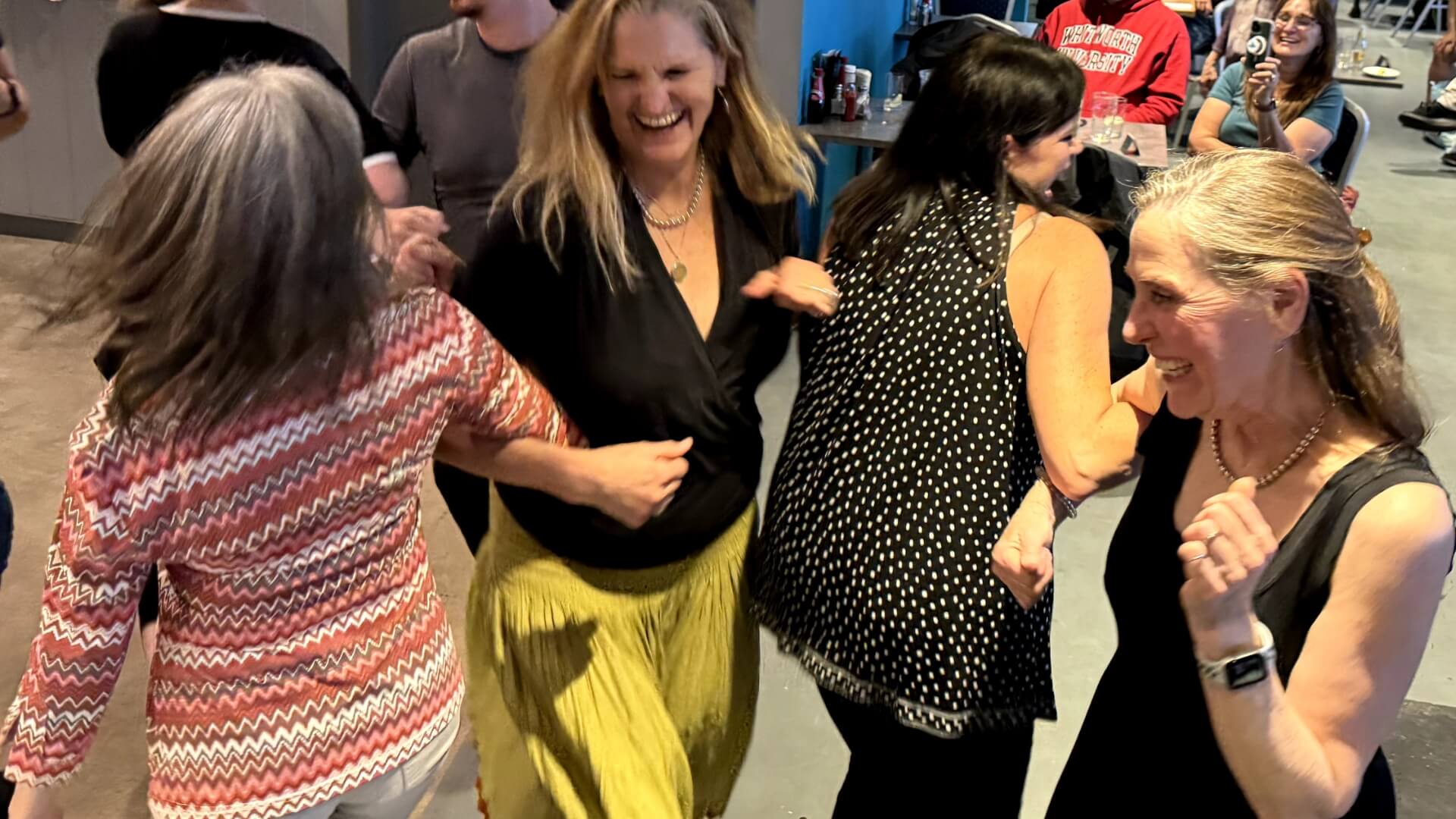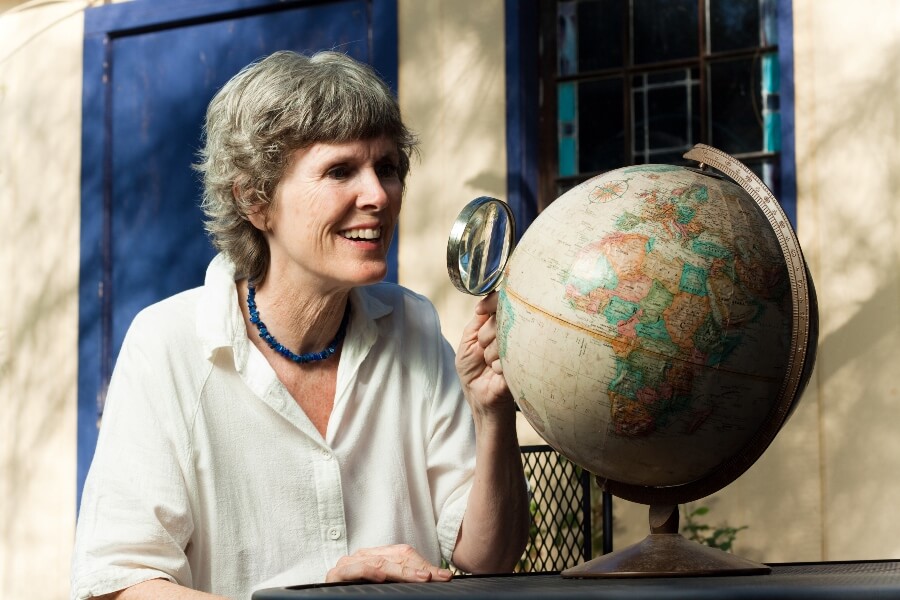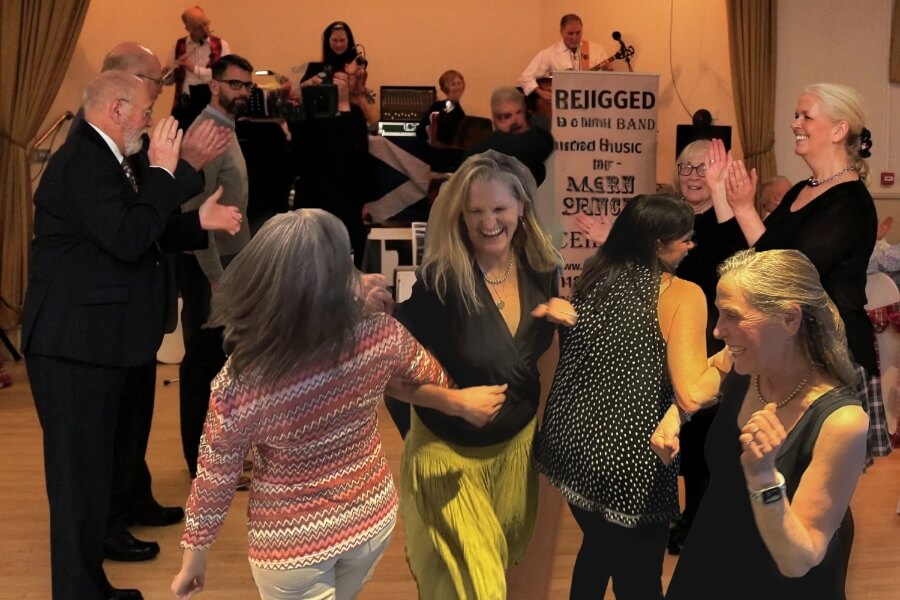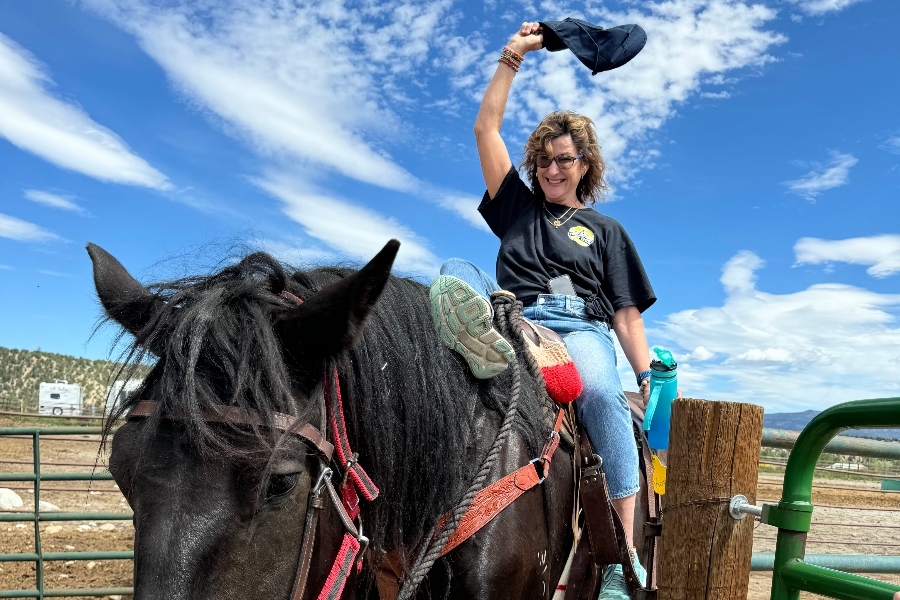“It’s a practice run for retirement,” a friend predicted when I enthusiastically told her about my paid three-month teaching sabbatical.
“Retirement?” I said, surprised. “I just need a break. I haven’t had a summer off in 10 years. I want to sip a glass of wine and watch sunsets in July, rather than be inside a classroom. Just for a little while.”
“You might fall in love with not working,” she cautioned.
Did an empty nest immediately lead to questions of when I’d stop working?
“Not me,” I disagreed. Yet lately friends were beginning to talk about retirement, even if they were a decade away from it. At tax time my accountant had started prodding me into planning for the future. My daughter was out of college and (mostly) supporting herself. Did an empty nest immediately lead to questions of when I’d stop working? One friend had bought a condo in Florida and spent a week a month in winter golfing. I couldn’t think of anything more boring.
I wasn’t tired of my career, just a bit burned out. I’d thrived as a university professor of creative writing, coaching students to unlock their creativity. I loved the way they kept me current about their world: clueing me in on everything from the latest technology to millennial dating habits. My husband didn’t know how to call an Uber, but I felt hipper, more connected to the younger generation. Yet I was concerned to hear my classroom voice occasionally veer into impatience, and I was beginning to tire of explaining the same concepts over and over. I hadn’t had a summer off since college. Clearly I needed to recharge. I deserved a break. I’d earned it.
So Many Goals…And So Much Time!
The word “sabbatical” has roots in Latin and Hebrew (shabbat, or Sabbath, means “a ceasing”). Professional sabbaticals are traditionally granted every seven years, and have evolved from simply taking a rest to achieving a goal.
My first goal: I wanted cooking on weeknights to feel enjoyable rather than a chore. I shopped at a leisurely pace at my local greenmarket, a farm-to-table chef rather than rushing to pick up Chinese takeout on the way home after sunset.
Next, I devoured books I was too busy to read, from Edith Wharton classics to beach reads. I dashed out to a Monday-night movie, thrilled to have the theater (and restroom) to myself. I snagged a solo lap lane in the pool during off-peak hours, while post-work folks had to splash through traffic jams in overflowing lanes. Midday I meandered into museums, avoiding weekend crowds. Just me and Renoir, communing in a high-ceilinged gallery like old friends.
Once jet lag was a memory, I had the rest of my sabbatical ahead to…now what?
A month into my sabbatical I embarked on a 10-day trip to Spain, leaving my husband home (he had to work, poor thing). What a luxury to arrive in Europe before the masses of tourists and high-season rates. Once I returned home and jet lag was a memory, I had the rest of my sabbatical ahead to…now what?
Suddenly I felt uncomfortably akin to retired neighbors, 10 or 20 years older. We strolled to the mailbox at the same time each afternoon.
“Just bills and brochures again,” they commented. Every day.
“Going to the doctor again,” one remarked, when I met her at the bus stop. “If not for my doctor’s visits, I’d have no social life.”
We waved to each other during slow strolls. They didn’t have urgent destinations. Neither did I. Who knew I would ever object to feeling too relaxed?
I ran out of recipes; cooking became a routine again, rather than a novelty. The movies left to see were silly rom-coms or cartoonish action movies. When I tried to make plans to meet friends for walks at dusk or picnics in the park…they were often so busy, working late, exhausted.
Bored In Retirement and Wondering: Who Exactly Was I Without My Work?
 Halfway into my “temporary cessation,” I was surprised to discover that I missed my identity. Who was I—if not the person who’d spent years gathering and disseminating knowledge about one thing: literature. I missed the way my students looked up to me…the rewards of guiding them and celebrating their accomplishments…even pointing out that it was unacceptable when their late assignments arrived with inane excuses, knowing my role extended into shaping them into responsible adults. Without my students I felt adrift, a bit empty inside. Whipping up pesto was tasty but didn’t fill my soul.
Halfway into my “temporary cessation,” I was surprised to discover that I missed my identity. Who was I—if not the person who’d spent years gathering and disseminating knowledge about one thing: literature. I missed the way my students looked up to me…the rewards of guiding them and celebrating their accomplishments…even pointing out that it was unacceptable when their late assignments arrived with inane excuses, knowing my role extended into shaping them into responsible adults. Without my students I felt adrift, a bit empty inside. Whipping up pesto was tasty but didn’t fill my soul.
I started emailing students and inviting them over. We’d sit in my backyard, chatting over cold brew.
“I’m blocked. I can’t write,” one told me.
“Go to a new neighborhood and write about it,” I suggested.
Without my students I felt adrift, a bit empty inside. Whipping up pesto and other dishes was tasty but didn’t fill my soul.
“What an awesome idea!” she said, as if I were a sage. She thanked me profusely, as if I’d revealed C.I.A. secrets. After she left I felt re-energized, happier, important.
My role model was my mentor in grad school, who passionately taught 15 years past traditional retirement age. He confessed to needing a nap before his evening seminars. I hated naps, never gave into them except during my third trimester of pregnancy. My mother refused to ever admit she was napping, saying, “I’m just resting my eyes.” She was a sculptor who began her career in her 50s and had her first show at 65—the mandatory retirement age of her generation.
My father retired—but was miserable. A year later he became a consultant for a business in financial trouble, strategizing turnaround. As a child I felt neglected that he worked all the time, but as an adult, I admired him for wanting professional stimulation long past traditional retirement age.
Looking Through a New Lens
Toward the end of my sabbatical, I set aside Wharton, drawn toward current news stories about people much older than I. A 77-year-old lifeguard was still blowing his whistle at a public beach. American Airlines dedicated a Boeing 777 to a mechanic after his 75 years of service, who said, “Retirement is not my style.” Eighty-nine-year-old Agnes Varda directed and starred in Faces Places, the masterpiece of her exemplary career. And among the bills and brochures in my mailbox, a professional magazine arrived with a cover story on writers who published their first books after 50.
A month before returning to teaching, I started working on my syllabus with excitement, like a kid buying a new backpack before school started.
A month before returning to teaching, I started working on my syllabus with excitement, like a kid buying a new backpack before school started. Now, renewed with energy as if I’ve just had multiple B12 shots, I find myself bursting with ideas to integrate into my classroom. More than ever, I have no immediate plans to slow down. Busy once more, my new goal is to retain some of that relaxing time for myself the way I did in my sabbatical, even if I have to program a pedicure into iCalendar. And at tax time when that inevitable question arises again, I’ll quote Betty White: “Retirement is not in my vocabulary. They aren’t going to get rid of me that way.”
I’ve decided to rename my sabbatical Just Resting My Eyes. My short break from teaching reminded me, and reinforced, how my years of hard work have made me who I am today. Yes, it was wonderful to take time off and recharge, but even more wonderful is learning, giving, doing. I’m back, eyes wide open.
***
Candy Schulman is an award-winning writer whose essays, articles, and humor pieces have appeared in The New York Times, The Washington Post, Salon, Next Avenue, New York Magazine, Glamour, Rumpus Funny Women, Parenting, and elsewhere including anthologies.






















0 Comments